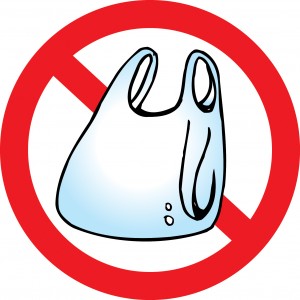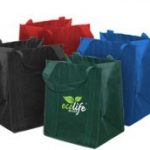Austin Embraces Reusable Shopping Bags

Several cities across the United States are weighing the pros and cons of banning plastic disposable bags. Austin, Texas is another city on the constantly growing list working to implement such a ban. The Austin Resource Recovery, the department handling the transition, has been working diligently on drafting and redrafting the bill to make sure they get it right. As with other cities that have passed similar bans, there is resistance and opposition, but the authorities of Austin have allowed the community to join the conversation and give feedback via public forums. They are listening and taking everyone’s opinion into account to make sure potential problems are addressed and the transition is as easy as possible. This organic methodology makes the entire endeavor constructive and allows the city and residents to put their heads together for a solution everyone can be happy with, and they most certainly should be proud of the work they are doing.
The Reusable Bag Plan
Under the most recent draft that is soon to be released, shoppers can bring reusable grocery bags when they head to the store or pay a fee to use disposable bags starting as early as March 2012 with the all-out ban taking effect as early as March 2013 or as late as 2016. Once the ban is in place retailers will only be able to offer their customers reusable bags. Acceptable reusable bags offered by stores have been defined as thick plastic bags with at least 50% recycled content or thick paper bags with 100% recycled content. Shoppers are free to bring their bags made from other materials. This staged approach is intended to give consumers and retailers the opportunity to prepare and get used to life without one-time-use bags. Austin’s bag ban does not include bags given out at pharmacies or restaurants to protect customers’ privacy and ensure food safety.
The benefits of banning plastic bags are many. While disposable bags are recyclable only a small percentage ends up being recycled. Most plastic bags end up in landfills or as litter which is extremely unsafe given that the bags are not biodegradable. Plastic bags will break down over time, but it takes many decades and harmful chemical compounds are released in the process. These compounds can leach into water supplies damaging wildlife habitats and compromising drinking water. Banning bags may seem extreme, but by removing the demand there will be fewer bags in circulation and over time there will be fewer bags littering streets and taking up space in landfills.
Drawing Inspiration from Brownsville
Austin’s ban is based largely on the ban enacted in Brownsville, Texas. The city of Brownsville first proposed the ban after a hurricane swept through the area and flood waters could not drain due to discarded plastic bags clogging the drainage system. Brownsville had long been plagued by unsightly litter that mostly consisted of plastic bags. Since the bags are so light they can easily be picked up by the wind and blown down streets and sidewalks until they are deposited in trees or canals where they pose a serious risk to local wildlife and are just plain ugly to look at. The best solution Brownsville could come up with was banning the use of plastic bags altogether. There are clear environmental advantages to the ban, less litter, less risk to animals and their habitats, less non-biodegradable trash in landfills, and just a cleaner, more inviting community to live in. Brownsville also had financial and functional motivation since the litter was impacting the canal and drainage systems. Most cities that have opted to ban bags, such as San Francisco, Palo Alto, and Seattle have done so primarily for environmental reasons, but Brownsville’s initial reason is no less valid. A year after the ban was put into place there is noticeably less litter in Brownsville and no matter where you stand on the environmental issues you have to admit that clean, litter-free streets and sidewalks make for a nice place to live or visit. Doing right by the environment is just icing on the cake in this instance. The path Brownsville forged is guiding others to lives free of plastic bags and litter.
Reusable Grocery Bags to the Rescue
 Reusable bags fill the void left by plastic bags. Stocking up on reusable shopping bags means fewer plastic bags are put into circulation so fewer bags will be tossed into landfills, or worse yet tossed onto parks and roadways. Many reusable bags are even made from recycled materials and can be recycled themselves when they become worn and just can’t cut it anymore for an ecological spin on paying it forward. Bags can be made from jute, cotton, and even bamboo, so you are sure to find a bag that fits your needs and beliefs. Reusable bags are not all eco-savvy and have good looks. Reusable grocery bags are designed to hold more than a disposable bag which is great news if you use public transportation or walk to the grocery store or bodega. One reusable bag can do the job of several disposable bags, and reusable bags typically feature long shoulder straps for comfortable, hands-free carrying, so the days of plastic handles digging into your hands or arm will become a faint, distant memory. Even if you get your groceries home via your car, making the switch to reusable bags typically means fewer trips to get everything inside.
Reusable bags fill the void left by plastic bags. Stocking up on reusable shopping bags means fewer plastic bags are put into circulation so fewer bags will be tossed into landfills, or worse yet tossed onto parks and roadways. Many reusable bags are even made from recycled materials and can be recycled themselves when they become worn and just can’t cut it anymore for an ecological spin on paying it forward. Bags can be made from jute, cotton, and even bamboo, so you are sure to find a bag that fits your needs and beliefs. Reusable bags are not all eco-savvy and have good looks. Reusable grocery bags are designed to hold more than a disposable bag which is great news if you use public transportation or walk to the grocery store or bodega. One reusable bag can do the job of several disposable bags, and reusable bags typically feature long shoulder straps for comfortable, hands-free carrying, so the days of plastic handles digging into your hands or arm will become a faint, distant memory. Even if you get your groceries home via your car, making the switch to reusable bags typically means fewer trips to get everything inside.
There are many reasons why cities choose to ban plastic bags and individuals decide to give reusable bags a go. While the negative environmental impact of using plastic bags can be alarming, other drawbacks are equally alarming and upsetting. The plastic bag ban movement is picking up steam, so even if there isn’t talk of banning bags in your city today you never know what tomorrow will bring, and you don’t need to wait for politicians to tell you what to do. If you haven’t yet, consider making the switch to reusable bags, they’re better for the environment and your community, and this way if a ban is put into place you will be ahead of the curve.
Tagged




